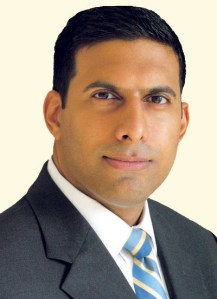What Does Romney’s Veep Selection Mean for the Country? Everything.
By Sam Chandan August 15, 2012 7:15 am
reprintsEconomists rejoice.
In selecting Representative Paul Ryan as his running mate, Gov. Mitt Romney has framed the 2012 election squarely in terms of jobs, the economy and the need for budget reform. He has also sharpened the contrast between our choices come November. If elected officials were ideologues as bold as their candidate personas, a Ryan vice presidency would enact a more radical revision of American government than we have yet seen. It is a less intrusive government, at least in terms of dollars and economic distortions, and one that makes divisive distinctions between perceived dependence and the virtues of self-reliance.

At the helm of the House Budget Committee, Mr. Ryan has been forced to marry ideological positions with concrete proposals. This has earned him a nominal role as the Republican Party’s intellectual torchbearer. Among today’s most outspoken politicians, qualified candidates for such a title are embarrassingly rare. No hockey mom, Mr. Ryan is refreshing in an entirely different way: his tough talk is rather specific, it offers some gauges of its real costs, and it necessarily estranges some independent voters. That’s not to say his policy proposals will always pass muster with the intelligentsia or the party faithful. In the denouement of Saturday’s announcement, the Onion’s warning of the “Nation’s Economists Quietly Evacuating Their Families” is undoubtedly true somewhere.
Correcting the nation’s fiscal course and supporting the conditions conducive to private sector investment are necessary, however difficult. In a “paths” analysis undertaken by the Congressional Budget Office at the behest of Mr. Ryan and using his assumptions, the former determined that federal revenues as a share of GDP will rise between 2011 and 2030. On the expenditure side, non-interest spending apart from Social Security, Medicare, Medicaid and the Children’s Health Insurance Program will fall from 12.5 percent of GDP to less than 4 percent in 2050. Even as the federal government’s discretionary role evaporates, deficits will not turn to surplus until 2040. To the Ryan plan’s credit, lower debt levels will support stronger growth before then.
For those who may worry the election will assume a dry tone, dominated by discussions of economics and entitlement reform: be patient. Larger opportunities for catharsis will present themselves in spades.
On social issues, Ryan is out of step with the stated preferences of most New Yorkers. His record on civil rights and protections for gay and lesbian Americans places him squarely in the camp of social conservatives. He has cast votes against gay marriage, adoption rights and hate crimes protections, and he opposed ending the military ban on open service. His notion of unintrusive government is flexible enough that he favors a constitutional amendment to enshrine a traditional definition of marriage. If you have liberal leanings and believe that a threat to liberty anywhere is a threat to liberty everywhere, Mr. Ryan is no friend.
Aside from the obvious points of social schism, Mr. Ryan’s approach to fiscal policy has detractors among liberal Catholics and the Church’s leadership. In two-dimensional view of the world, the faithful are always consonant with conservatives. In reality, parts of his federal budget proposal have been rebuked by the Conference of Catholic Bishops, who called on “Congress and the administration to protect essential help for poor families and vulnerable children and to put the poor first in budget priorities.” In concluding that the House budget “fails to meet these moral criteria,” Bishop Stephen Blaire and his colleagues were responding in part to Mr. Ryan’s assertions that Catholic teachings on subsidiarity inform his approach to fiscal policy-making.
The practicalities of winning an election will render Mr. Ryan a polarizing figure, even within his party’s establishment. The congressman’s proposals for retirement and health care security and for upending the tax system are sufficiently far-reaching that they elude pedestrian analysis. In an electoral system sustained by sound bites, in which the most resonant proposals can be conveyed in a single tweet, it is unlikely that
Mr. Ryan’s positions will be evaluated on their true merits. Instead, many voters will embrace or reject him because the combination of limited government and social conservatism either appeals or is anathema to their ideological predispositions.
But that simple thinking is a failure by an uncritical electorate, not one that can be attributed to Washington.
dsc@chandan.com
Sam Chandan, PhD, is president and chief economist of Chandan Economics and an adjunct professor at the Wharton School.



